
Karen Adelman
Harvard Medical School
USA
EMBL Conference
This conference will take place at EMBL Heidelberg, with the option to attend virtually.
The EMBL ‘Transcription and chromatin’ conference has a long-standing tradition in shaping the field of transcriptional regulation. The meeting brings together leading experts covering all aspects of transcription including cis-regulatory function, long range regulation, 3-dimensional looping, the basal transcriptional machinery, RNA polymerase regulation and function, nucleosome positioning, chromatin modifications, chromatin remodelling, and epigenetic inheritance of transcriptional silencing. The meeting contains many talks selected from the abstracts that are interspersed with invited speakers, discussing the latest breakthroughs in transcriptional regulation.
The conference is designed to promote interactive discussions at both the talks and poster sessions. Given the excellent lineup of speakers and the meeting’s outstanding reputation, this is a must-attend for anyone interested in cutting-edge research in transcription.
“I would say that I am privileged to have been in the most prestigious institute on the planet. It was my dream come true moment during the conference. I sincerely thank EMBL for providing me conference registration grant otherwise it would never have been possible for me to reach EMBL. I would urge every life sciences student to be at EMBL at least once, it will be a lifetime experience for sure as it was for me.” – Haneul Yoo, Max Planck Institute of Immunobiology and Epigenetics, Germany
“I am new to the field and attended the EMBL conference to meet people and learn about the field. I learned a ton during the four days at the ATC and I also made new friends and contacts who I look forward to meeting again in future conferences.” – Marion Turpin, Institute Genetics & Development of Rennes, France
“A pleasure to attend my first EMBL Transcription and Chromatin conference! Also very happy of having the opportunity to share my team’s work, networking and learning from incredible researchers in the field!” Elena Gómez Marín, Andalusian Molecular Biology and Regenerative Medicine Centre, Spain

Harvard Medical School
USA
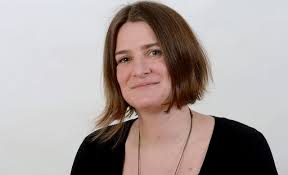
Institut Curie
France
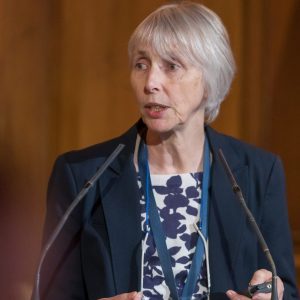
John Innes Centre
UK
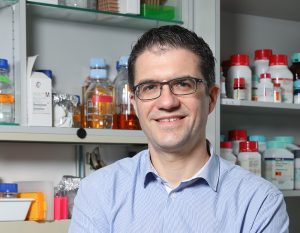
Ecole polytechnique fédérale de Lausanne
Switzerland

Princeton University
USA

University of Copenhagen
Denmark
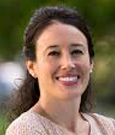
Dana-Farber Cancer Institute and Harvard Medical School
USA
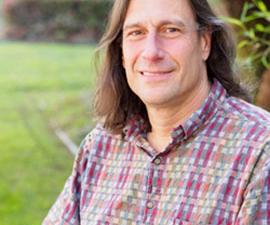
University of California, Berkeley
USA

Hubrecht Institute
The Netherlands
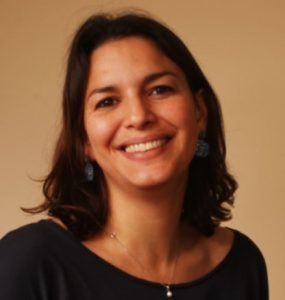
Institut de Génétique Moléculaire de Montpellier
France

Netherlands Cancer Institute
The Netherlands
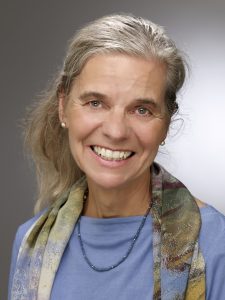
University of Colorado Boulder
USA

Research Institute of Molecular Pathology
Austria

Ludwig Cancer Research
United Kingdom
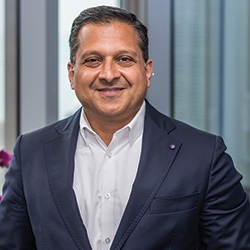
Northwestern University Feinberg School of Medicine
USA

Netherlands Cancer Institute
The Netherlands

Erasmus University Rotterdam
The Netherlands

Johns Hopkins University
USA
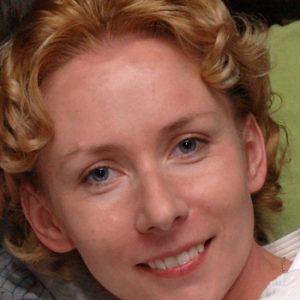
Stanford University
USA

Fudan University
China

Harvard University
USA

University of Pennsylvania
USA
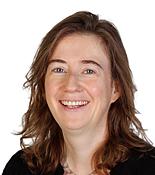
EMBL Heidelberg
Germany

Friedrich Miescher Institute for Biomedical Research
Switzerland
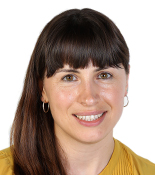
EMBL Heidelberg
Germany
Are you on social media? Post using #EMBLTranscript and don’t forget to tag @EMBLEvents.
Please find the poster listing here.
| Time (Europe/Berlin) | Speaker |
|---|---|
| 14:30-16:30 | Arrival and registration |
| 15:00-15:50 | Pre-conference workshop with LUMICKS |
| 16:30-16:40 | Opening remarks |
| 16:40-18:10 | Session 1 Chairs: Eileen Furlong ‑ EMBL Heidelberg, Germany and Jürg Müller ‑ Max Planck Institute of Biochemistry, Germany |
| 16:40-17:00 | The rapidly expanding histone universe Karolin Luger – University of Colorado, Boulder and HHMI, United States of America |
| 17:00-17:20 | Molecular insight into transcription elongation regulatory mechanisms and epigenetics deliver critical targets for cancer therapeutics Ali Shilatifard – Northwestern University, United States of America Not available on demand |
| 17:20-17:35 | Structural basis of transcription and pausing by RNAPII in chromatin Shun‑ichi Sekine – RIKEN, Japan |
| 17:35-17:50 | Single‑molecule dynamics of pioneer transcription factors interrogating chromatin in living cells Wulan Deng – Peking University, China |
| 17:50-18:10 | The epigenetic reader Phf2 is positioned in the genome by cohesin Jan‑Michael Peters – Research Institute of Molecular Pathology, Austria |
| 18:10-19:45 | Dinner in the Canteen |
| 19:45-21:15 | Pub Quiz in the Canteen |
| 19:45-22:00 | After dinner drinks in the Rooftop Lounge and Foyer |
| Time (Europe/Berlin) | Speaker |
|---|---|
| 09:00-12:25 | Session 2 Chairs: Karolin Luger ‑ University of Colorado Boulder, USA & Peter Verrijzer ‑ Peter Verrijzer ‑ Erasmus University Rotterdam, The Netherlands |
| 09:00-09:20 | Integrator‑mediated control of stress responses Karen Adelman – Harvard Medical School, United States of America Not available on demand |
| 09:20-09:35 | Structural basis of chromatin transcription Lucas Farnung – Harvard Medical School, United States of America Not available on demand |
| 09:35-09:50 | Direct recruitment of RNA Polymerase II by NANOG to chromatin Nick Mullin – The University of Edinburgh, United Kingdom |
| 09:50-10:05 | Basal transcription factor TFIID in neurodevelopment and neurodegeneration Marc Timmers – German Cancer Research Center (DKFZ), Germany |
| 10:05-10:25 | Structural Insights into Transcription Initiation Yanhui Xu – Fudan University, China |
| 10:25-11:00 | Coffee Break |
| 11:00-11:20 | Dissecting the dynamics of coordinated active transcriptional repression in a multicellular organism Mounia Lagha – French National Centre for Scientific Research (CNRS), France |
| 11:20-11:35 | Chip’ping away at zygotic genome activation Charalampos Galouzis – EMBL Heidelberg, Germany |
| 11:35-11:50 | HIV‑1 promoter bursting in T‑lymphocytes and its implication in latency regulation Eugenia Basyuk – MFP UMR 5234 CNRS, University of Bordeaux, France |
| 11:50-12:05 | A conserved cis‑acting range extender element mediates extreme long‑range enhancer activity in mammals Grace Bower – University of California, Irvine, United States of America |
| 12:05-12:25 | Location, location, location: Probing the functional landscape of a genomic locus Bas van Steensel – Oncode Institute, Netherlands Cancer Institute, The Netherlands |
| 12:25-14:00 | Lunch |
| 14:00-16:30 | Poster Session 1 (odd) with coffee and refreshments |
| 16:30-18:45 | Session 3 Chaired by: Yang Shi -Ludwig Cancer Research, United Kingdom & Cigall Kadoch – Dana-Farber Cancer Institute and Harvard Medical School, USA |
| 16:30-16:50 | The biogenesis, dynamic maintenance and function of open chromatin Carl Wu – Johns Hopkins University, United States of America |
| 16:50-17:05 | Two distinct chromatin modules regulate 17 proinflmmatory gene expression Karsten Rippe – German Cancer Research Center (DKFZ) Not available on demand |
| 17:05-17:20 | Long‑range TF co‑occupancy identifies functional dependencies between cis‑regulatory elements Arnaud Krebs – EMBL Heidelberg, Germany |
| 17:20-17:35 | The RNA binding protein Hangover associates with chromatin and regulates transcription Alexander Brehm – Philipps University of Marburg, Germany |
| 17:35-17:55 | A new spin to chromatin regulation of retrotransposons Déborah Bourc’his – Institut Curie, France |
| 18:00-20:00 | Dinner in the Canteen |
| 20:00-22:00 | After dinner drinks in the Rooftop Lounge and Foyer |
| Time (Europe/Berlin) | Speaker |
|---|---|
| 09:00-12:25 | Session 4 Chaired by: Karen Adelman ‑ Harvard Medical School, USA & Jan‑Michael Peters ‑ Research Institute of Molecular Pathology, Austria |
| 09:00-09:20 | Chromatin replication and epigenome maintenance Anja Groth – Novo Nordisk Foundation Center for Protein Research, University of Copenhagen, Denmark Not available on demand |
| 09:20-09:35 | Structural insight into the mechanisms of Polycomb Repressive Complex 1 Maria Ciapponi – Max Planck Institute of Biochemistry, Germany |
| 09:35-09:50 | Chromatin tethering by the Trithorax homolog, MLL2, during the ESC naive to primed transition Francis Stewart – University of Cambridge, United Kingdom |
| 09:50-10:05 | Molecular kinetics of transcription regulation during embryonic development Mustafa Mir – University of Pennsylvania, United States of America |
| 10:05-10:25 | Imaging real‑time single‑molecule dynamics in genome regulation Beat Fierz – École Polytechnique Fédérale de Lausanne (EPFL), Switzerland Not available on demand |
| 10:25-11:00 | Coffee Break |
| 11:00-11:20 | EMBO Young Investigator Lecture Transcription factor exchange enables prolonged transcriptional bursts Tineke Lenstra – Netherlands Cancer Institute, The Netherlands |
| 11:20-11:35 | Enhancer redundancy sustains transcriptional memories in metastatic cells Alessio Zippo – University of Trento, Italy |
| 11:35-11:50 | Transient promoter interactions modulate developmental gene activation Angelika Feldmann – German Cancer Research Center (DKFZ), Germany Not available on demand |
| 11:50-12:05 | Enhancer cooperativity can compensate for loss of activity over large genomic distances Christa Buecker – Max Perutz Labs Vienna / University of Vienna, Austria |
| 12:05-12:25 | Spatial organization of a gene locus around transcription factor clusters in Drosophila embryos Thomas Gregor – Princeton University, United States of America / Institut Pasteur, France |
| 12:25-14:00 | Vegetarian lunch and Meet the Editors between 13:00 – 14:00 in the Foyer Chiara Anania and Hui Hua from Springer Nature Esther Schnapp and Hannah Sonntag from EMBO Lavinia Arseni from FEBS Letters |
| 14:00-16:30 | Poster Session 2 (even) with coffee and refreshments |
| 16:30-18:00 | Session 5 Chaired by Gary Karpen ‑ University of California, Berkeley, USA & Deborah Bourch’has ‑ Institut Curie, France |
| 16:30-16:50 | Measuring single‑cell chromatin transitions in time Jop Kind – Hubrecht Institute / Royal Netherlands Academy of Arts and Sciences / Oncode Institute / University Medical Center Utrecht, The Netherlands |
| 16:50-17:05 | Circadian rhythm tempers establishment of X chromosome inactivation Marnie Blewitt – Walter and Eliza Hall Institute of Medical Research, Australia Not available on demand |
| 17:05-17:20 | Functional redundancy and pathogenic mechanisms in RING1 and RNF2 variants: Insights from H2AK119ub1 dosage in human neural development Stephanie Bielas – University of Michigan Medical School, United States of America |
| 17:20-17:35 | Active‑state structures of the MSL reader/writer complex reveal the molecular basis of histone H4K16 acetylation Sebastian Eustermann – EMBL Heidelberg, Germany |
| 17:35-17:55 | Structure and Function of Mammalian SWI/SNF Chromatin Remodeling Complexes in Health and Disease Cigall Kadoch – Dana‑Farber Cancer Institute & Harvard Medical School, United States of America Not available on demand |
| 18:00-20:00 | Dinner in the Canteen |
| 20:00-22:00 | After dinner drinks in the Rooftop Lounge and Foyer |
| Time (Europe/Berlin) | Speaker |
|---|---|
| 09:00-12:25 | Session 6 Chaired by Anja Groth ‑ University of Copenhagen, Denmark & Ali Shilatifard ‑ Northwestern University Feinberg School of Medicine, USA |
| 09:00-09:20 | Affinity hierarchies and amphiphilic proteins underlie the co-assembly of nucleolar and heterochromatin condensates Gary Karpen – University of California, Berkeley, United States of America |
| 09:20-09:35 | Elucidating the role of cohesin loop extrusion in transcriptional dynamics and enhancer‑promoter communication Karissa Hansen – University of California, San Francisco, United States of America Not available on demand |
| 09:35-09:50 | Mechanisms of transcription control by distal enhancers from high‑resolution single‑gene imaging Alexandros Pertsinidis – Memorial Sloan Kettering Cancer Center, United States of America |
| 09:50-10:05 | Histone variant H2BE enhances chromatin accessibility in neurons to promote synaptic gene expression and long‑term memory Erica Korb – University of Pennsylvania, United States of America |
| 10:05-10:25 | Developmental stage‑specific functions and mechanisms of Polycomb silencing Yi Zhang – Boston Childrens Hospital, United States of America Not available on demand |
| 10:25-11:00 | Coffee Break |
| 11:00-11:20 | The tail wagging the dog: function of the p53 IDR in target gene selection Peter Verrijzer – Erasmus University Medical Center, The Netherlands Not available on demand |
| 11:20-11:35 | Fueling memory: the metabolic enzyme ACSS2 as a modulator of neuronal resilience Desi Alexander – Washington University School of Medicine in St. Louis, United States of America |
| 11:35-11:50 | Systematic assessment of ISWI subunits shows that NURF creates local accessibility for CTCF Francesca Masoni – Friedrich Miescher Institute for Biomedical Research, Switzerland Not available on demand |
| 11:50-12:05 | Enhancer control of transcriptional activity via modulation of burst frequency Jana Tünnermann – Friedrich Miescher Institute for Biomedical Research, Switzerland |
| 12:05-12:30 | Termination or read‑through: co‑transcriptional processing linked to epigenetic silencing Caroline Dean – John Innes Centre, United Kingdom |
| 12:25-14:00 | Lunch |
| 14:00-16:30 | Poster Session 3 (odd and even) with coffee and refreshments |
| 16:30-19:00 | Session 7 Chaired by Shelley Berger ‑ University of Pennsylvania, USA & Luca Giorgetti ‑ Friedrich Miescher Institute for Biomedical Research, Switzerland |
| 16:30-16:50 | To be presented on‑site Yang Shi – Ludwig Institute for Cancer Research, Oxford University, United Kingdom Not available on demand |
| 16:50-17:05 | Sequence signature of evolutionary activation of distal regulatory elements in primate astrocytes Aleksandra Pekowska – Nencki Institute of Experimental Biology, Polish Academy of Sciences, Poland |
| 17:05-17:20 | Dynamic PRC1‑CBX8 stabilizes a porous structure of chromatin condensates Chen Davidovich – Monash University, Australia |
| 17:20-17:35 | Transposons in 3D: loop extrusion and compartmentalization affect the regulatory capacity of repeat elements Elzo de Wit – The Netherlands Cancer Institute, The Netherlands |
| 17:35-17:55 | How do transcription factors tolerate long polyglutamine tracts? Joanna Wysocka – Stanford University, United States of America Not available on demand |
| 17:55-18:10 | Closing remarks and poster prizes |
| 18:10-20:30 | Conference dinner in the Canteen |
| 20:30-23:30 | Conference party with live music from The Wright Thing |
Late poster abstracts for this conference will still be considered. Please contact nathalie.sneider@embl.org if you are interested in presenting a poster.
On-site registration fees include admission, conference materials, meals and coffee breaks. Participants are expected to book and pay their own accommodation and travel expenses.
Virtual registration fees include access to all of the talks (livestreamed and on demand) and facility to submit questions.
| On-site Academia | €800 |
| On-site PhD Student | €700 |
| On-site Industry | €1000 |
| On-site Journal Editors* | €300 |
| Virtual Academia | €225 |
| Virtual PhD Student | €175 |
| Virtual Industry | €275 |
* Editors from scientific journals are allowed to attend at a reduced rate, but asked to contribute to the conference in return by taking part in ‘meet the editors’ sessions or other planned activities within the programme.
A letter to support your visa application will be issued, on request, once payment of the registration fee is confirmed. We recommend that you book your visa appointment as soon as possible, to avoid any delay with your visa application.
Accredited journalists may be eligible to register for complimentary press registration. Registrants may be required to provide accreditation or equivalent proof of press membership after registration. Please contact Nathalie Sneider for more information. Please note that we do not offer complimentary registrations for editors of scientific journals.
Registration will be on a first come, first served basis. Your place can only be confirmed after payment of the registration fee. If you are added to our waiting list, please consider taking advantage of our offerings to participate virtually.
On-site participants: Types of payments accepted are international bank transfers and credit card payments.
Virtual participants: We are only able to accept card payments. In exceptional cases we can accept bank transfers. Please contact events@embl.de for details.
Only participants registering to attend the on-site event are eligible to submit an abstract. Abstracts will not be accepted from virtual participants.
After registration you can submit your abstract via a separate link that will be provided in the email confirmation. Alternatively, you can access the link on the confirmation page directly after registering. The same login credentials are used for both processes.
Please note:
Abstract body: The limit of 2000 characters refers to manually typed text and excludes spaces. If an error occurs try using a different web browser (preferably Google Chrome or Mozilla Firefox).
If you copy-paste the text into the form, hidden formatting might still be included which may cause the text to exceed the 2,000 character limit resulting in an error message. We recommend you clear all formatting before pasting in the text.
If you have special symbols in your text, make sure you are using Unicode characters, otherwise these will not be recognised.
Title: The title should not exceed 20 words. Only the first word of the title should start with a capital letter and the rest should be lowercase.
Authors and affiliations: Please fill in the author’s details as requested in the online form. The compulsory fields are: First Name, Last Name, Organisation Name (Affiliation or Company), Country and Email.
Kindly mark only one author in the role of First Author and please don’t forget to indicate who will be the Presenter.
Please enter your co-authors correctly via the system by adding accounts together with their organisation/institute. Do not copy-paste them into the body of the abstract text, as they will not be indexed in the abstract book.
Presentation types: When submitting your abstract, you can apply for an oral or poster presentation. A selection process will take place with the results announced 2-3 weeks after the abstract submission deadline.
For detailed instructions on how to submit a conference abstract, follow the instructions provided in this video.
Please check our FAQs pages for further information on how to submit an abstract.
Limited financial assistance is provided by the EMBL Advanced Training Centre Corporate Partnership Programme and EMBO in the form of registration fee waivers, travel grants, and childcare grants.
Your place in the meeting is only confirmed by paying the registration fee, which is mandatory even when receiving a fee waiver.
The fee waiver will cover the registration sum that you have paid to attend the course or conference.
The travel grant will cover the cost of travel to an on-site event (airfare, train, bus, taxi, accommodation, visa, and/or registration fees*) and is provided up to specified caps which are normally as follows:
–up to €400 for participants travelling to an EMBL Conference or EMBO|EMBL Symposium from within Europe.
–up to €1000 for participants travelling to an EMBL Conference or EMBO|EMBL Symposium from outside Europe.
–up to €500 for any participant travelling to an EMBO Workshop.
–up to €1000 for any participant working in Chile, India, Singapore or Taiwan travelling to an EMBO Workshop.
–up to €700 for any participant working in Croatia, Czech Republic, Estonia, Greece, Hungary, Italy, Lithuania, Luxembourg, Poland, Slovenia, and Turkey travelling to an EMBO Workshop.
*Registration fees are only covered for EMBO Workshops
The organisers may reduce the grant cap to accommodate more participants. Recipients will be notified of their travel cap amount when they are informed of the outcome of their application. Original receipts must be provided with your signature for all costs incurred within two months of completion of travel. Scanned copies cannot be accepted.
There is the possibility to apply for a childcare grant to offset child care costs incurred by participants, speakers, and organisers when attending a conference.
Eligible costs include (but are not limited to) fees for a baby-sitter or child-care facility, and travel costs for a caregiver. Please note that priority will be given to early stage researchers. In order to apply for this grant, you must be registered by the abstract submission deadline. There is a limited amount of funding available for the childcare grants and funds will be distributed amongst eligible applicants.
On-site participants
You may apply for financial assistance when submitting your abstract. In your application you will be asked to answer questions regarding why your lab cannot fund your attendance and how your attendance will make a difference to your career. Application for financial support will not affect the outcome of your registration application.
Virtual participants
If you are attending virtually, you can apply for financial assistance in the submission portal by the abstract deadline. Read the instructions on how to apply for financial assistance. Only submissions for financial assistance will be accepted. Presentation abstracts cannot be submitted here and will be declined.
In your application you will be asked to summarise your current work, answer questions regarding why your lab cannot fund your attendance, and how your attendance will make a difference to your career. Application for financial support will not affect the outcome of your registration application.
The scientific organisers will select the recipients of registration fee waivers and travel grants during the motivation letter or abstract selection process. Results will be announced approximately 6 – 8 weeks before the event start date, however for some events this may be delayed. Selection results do not impact your admission to the meeting. Selection for registration fee waivers and travel grants is based on scientific merit, your current work or study location, the reasons for needing financial support, and the impact this event will have on your career.
Childcare grants will be allocated in the same timeframe (6-8 weeks before the event start date). Please note that priority will be given to early-stage researchers.
Costs will be reimbursed after the meeting only once a reimbursement form and original receipts (from travel costs) have been received.
View our list of external funding opportunities and information on attending a conference as an event reporter.
For further information about financial assistance please refer to the FAQ page.
Accommodation is not included in the conference registration fee.
The hotels below have rooms on hold for participants until Saturday 27 July 2024, in some cases at special rates. Please email the hotel directly, quoting the booking code TRM24-01 to confirm the exact price of the room.
| Hotel Anlage | Hotel ibis Heidelberg |
| Hotel Bayrischer Hof | Exzellenz Hotel & Boarding House |
| B&B Hotel | Hotel Holländer Hof |
| Hilton Heidelberg |
For travel information, please see here.
If you are travelling to the conference within Germany then you are eligible for the Deutsche Bahn ‘Event Ticket’ (called the ‘Veranstaltungsticket’ in German). This will result in a lower ticket price if your travel distance to Heidelberg is more than 100 km. You need to provide proof of your event attendance when purchasing the ticket.
For more information in English see here or in German see here.
You can book your ticket here.
Conference shuttle buses are free of charge for participants, and depart from designated bus stops near the hotels to EMBL and back, mornings and evenings.
Please find the bus schedule here (updated as of 26 August).
The bus stops for this conference are:
View Conference shuttle bus stops and hotels in a larger map. Please note that not every bus stop will be used for every event.
Address: EMBL, Meyerhofstraße 1, 69117 Heidelberg, Germany.
For more information about accommodation and travel, please refer to the FAQ page.
All meals and coffee breaks are included in the registration fee. Our catering staff will prepare a wide variety of vegetarian meals, meat and fish dishes, soups, pasta, fresh fruit and vegetables, as well as a variety of desserts.
Please wear your badge at all times when serving yourself.
No food or drinks are allowed in the auditorium.
There are lockers available next to the stairs leading down into the Auditorium. You will find some of those equipped with sockets to charge your smartphone/tablet etc.
In most places the electricity is 220 volts AC (50 cycles). An adaptor and a plug that fits the German socket may be needed for your appliances/laptop (i.e. American, Japanese, etc.). A USB charging station for electronic devices is available at the registration desk.
If you are interested in purchasing EMBL merchandise (products presented in the glass display in the registration area), please email the EMBL shop to place an order or get in contact with your Course Organiser.
Kindly note the EMBL shop is only open upon request and all purchases must be made in cash (Euros only).
Please read EMBL’s COVID-19 safety policy for on-site events.
Do not smoke in any EMBL building.
Eating and drinking is prohibited in the Auditorium and all laboratories.
Do not enter any restricted areas or the laboratories unless instructed to do so.
If first aid is required …
In case of fire …
Beyond first aid…
Please remember to bring your own medication, if needed, to the conference. Note that the next pharmacy is a 4-minute drive from the EMBL, but for many medications you will be required to see a doctor to get a prescription.
Ensure in advance that your medical insurance will cover you during your visit in the event that you do need to see a doctor while in Heidelberg. In any case, the EMBL Course and Conference Office will assist you to get to the pharmacy and a doctor of your choice if necessary.
Wi-Fi is available on campus using the EMBL-Events network and the event specific password, which will be provided on site. The eduroam network (secure, worldwide roaming access service developed for the international research and education community) is also available.
‘’Lost and Found’’ items are kept at the registration desk until the end of the conference.
There are lockers available on-site to store your luggage, which require a 2 EURO coin to operate. There is another luggage room on level E0, which is free to use but remains unlocked during the conference.
There is a nursing room available in the ATC Rooftop Lounge on level A29.
During the conference, an EMBL Photographer may be taking photos. If you would not like to appear in these, please inform the photographer or a member of the Course and Conference Office.
We can help to print your boarding pass/train ticket. Please send it to events@embl.de and collect your print-outs at the registration desk.
There is a room for prayer, meditation and yoga located on level E0 behind the Auditorium. Please be respectful of others using the room.
A variety of activities in Heidelberg can be found on the website of Heidelberg Marketing.
During the event, we provide conference shuttle buses to and from EMBL. In addition, there is the public bus 39A that serves the EMBL campus and taxis can be easily booked at any time. Information on the conference shuttle buses can be found on the individual event website and more detailed information on travelling to EMBL can be found on our Travel Information page.
| Hello | Hallo |
| Goodbye | Auf Wiedersehen (formal) Tschüss (informal) |
| Good morning | Guten Morgen |
| Good afternoon | Guten Tag |
| Good evening | Guten Abend |
| Good night | Gute Nacht |
| I’m sorry | Es tut mir leid |
| Excuse me… | Entschuldigen Sie |
| How are you? | Wie gehts? |
| I’m fine thanks. And you? | Mir geht es gut , danke. Und Dir/Ihnen? |
| What is your name | Wie heißen Sie? (formal) Wie heißt Du? (informal) |
| My name is | Ich heiße… |
| Do you speak English | Sprechen Sie englisch? |
| I don’t understand | Ich verstehe nicht |
| Please speak more slowly | Können Sie bitte langsamer sprechen |
| Thank you | Dankeschön |
| Where is the toilet? | Wo ist die Toilette? |
| Please call me a taxi | Bitte rufen Sie mir ein Taxi |
| How do I get to….? | Wie komme ich zum/zur…..? |
| A beer/two beers please | Ein Bier/zwei Bier bitte |
| A glass of red/white wine please | Ein Glas Rot/Weisswein bitte |
| The menu, please | Die Speisekarte, bitte |
| Is there a local speciality? | Gibt es eine Spezialität aus dieser Gegend? |
| I’m vegetarian | Ich bin Vegetarier |
| It was delicious | Es war hervorragend |
| The bill, please | Die Rechnung, bitte |
| I have a headache | Ich habe Kopfschmerzen |
| I have a sore throat | Ich habe Halsschmerzen |
| My stomach hurts | Ich habe Magenschmerzen |
| I’m allergic to | Ich bin allergisch gegen |
| I need a doctor who speaks English | Ich brauche einen Arzt, der englisch spricht |
Please note that only on-site participants are able to submit abstracts and participate in the poster sessions.
We are using an event platform for this conference. More information about the platform will be shared ahead of the conference.
Additional information can be found in our Code of Conduct.
It is important to stay healthy and move around, especially when you are attending an event virtually. We have put together a few coffee break stretches and yoga videos in the conference platform for you to enjoy during the event.
Please use the Q&A function in the event platform.
If you have any other questions, you can go to the Help Desk in the event platform. Click on ‘more’ on the top menu and click Help Desk.
The programme is planned based on the Europe/Berlin time zone, unless otherwise stated. Please take your time zone into consideration when planning your attendance.
Please find additional information including FAQs, terms and conditions, COVID-19 safety policy and travelling to EMBL on our Information for participants page.
COVID-19 information for on-site events at EMBL Heidelberg can be found in our COVID-19 FAQs.
Silver sponsor
Bronze sponsor
Event sponsors
Event supporter
Media partners
EMBO Journal, an EMBO Press Journal
Development, The Company of Biologists Journal
Genes and Development, a Cold Spring Harbor Journal
Genome Research, a Cold Spring Harbor Journal
International Union of Biochemistry and Molecular Biology
Medinformatics, a Bon View Publishing journal
Open Biology, a Royal Society journal
Sponsorship opportunities
We offer a variety of event sponsoring possibilities, with the flexibility to select a set sponsorship package or combine individual sponsorship options to suit your event budget. Discounts are available for companies sponsoring multiple events at EMBL Heidelberg. View other conferences, or contact sponsorship@embl.de for further information on sponsoring possibilities.
If you are interested in becoming a media partner of this event, please visit our media partnerships webpage.
EMBL wishes to warn sponsors of EMBL conferences and courses of fraudulent schemes purporting to offer sponsorship opportunities on behalf of EMBL or affiliated with EMBL officials. One current scam campaign of which we are aware is conducted using the name ‘Judy Eastman’ (judy@gopcontact.a2hosted.com) and entails approaches to sponsors offering sponsorship opportunities on EMBL’s behalf. Please be kindly advised that all relevant communication regarding sponsorship of EMBL conferences, symposia and courses is handled by EMBL directly and is sent from an official EMBL account. EMBL does not work with any external providers on sponsorship acquisition.
Please also note that:
Suspicious communications purportedly from, for or on behalf of EMBL should be reported to EMBL at the following email address sponsorship@embl.de.
Want to let others know you’re attending this event? Take a look at our shareable media and feel free to use them in your social media channels or presentations.
For on-site participants only.
This industry webinar will be hosted by our sponsor LUMICKS B.V. before the EMBL Conference: Transcription and chromatin
on Saturday 24 August 2024, 15:00 – 16:00
Participation in this workshop is free of charge for registered on-site conference attendees. The workshop will take place in the Main Auditorium.
ABSTRACT
Single molecule biology: unravelling the mechanisms underlying chromatin organization and transcription
Daphne Jurriens, Roman Renger, Ann Mukhortava
LUMICKS B.V., Amsterdam, The Netherlands
The structure, regulation, maintenance, and organization of chromatin is critical to cellular function. Errors in the underlying molecular mechanisms have been shown to play a major role in diseases such as cancer. Hence, insights into the molecular details are needed to advance our understanding, improve biological models, and develop novel therapeutics. Dynamic single-molecule technologies offer an exciting opportunity to meet these challenges and to study protein dynamics, function and activity in real time.
Here, we present our efforts for enabling discoveries in chromatin and epigenetics research. With the C-TrapTM, we provide an easy-to use instrument that combines optical tweezers, fluorescence microscopy and microfluidics. It allows you to visualize the interaction and activity of individual protein complexes with and on chromatin in real time, assemble chromatin structures in situ and to directly measure the mechanical forces that determine chromatin architecture. We will cover several example studies in which our technology, biochemistry and data analysis solutions have enhanced the understanding of fundamental processes of chromatin biology, ranging from DNA damage repair to transcription to nucleosome remodeling. Furthermore, we will demonstrate how our platform can be utilized to assess the mechanical properties of individual chromatin fibers and complete chromosomes under various conditions related to physiology and disease.
Date: 24 - 27 Aug 2024
Location: EMBL Heidelberg and Virtual
Venue: EMBL Advanced Training Centre
Deadline(s):
Abstract submission: Closed
Registration (On-site): Closed
Registration (Virtual): Closed
Organisers:
Contact: Nathalie Sneider